Презентація на тему «The development of modern English»
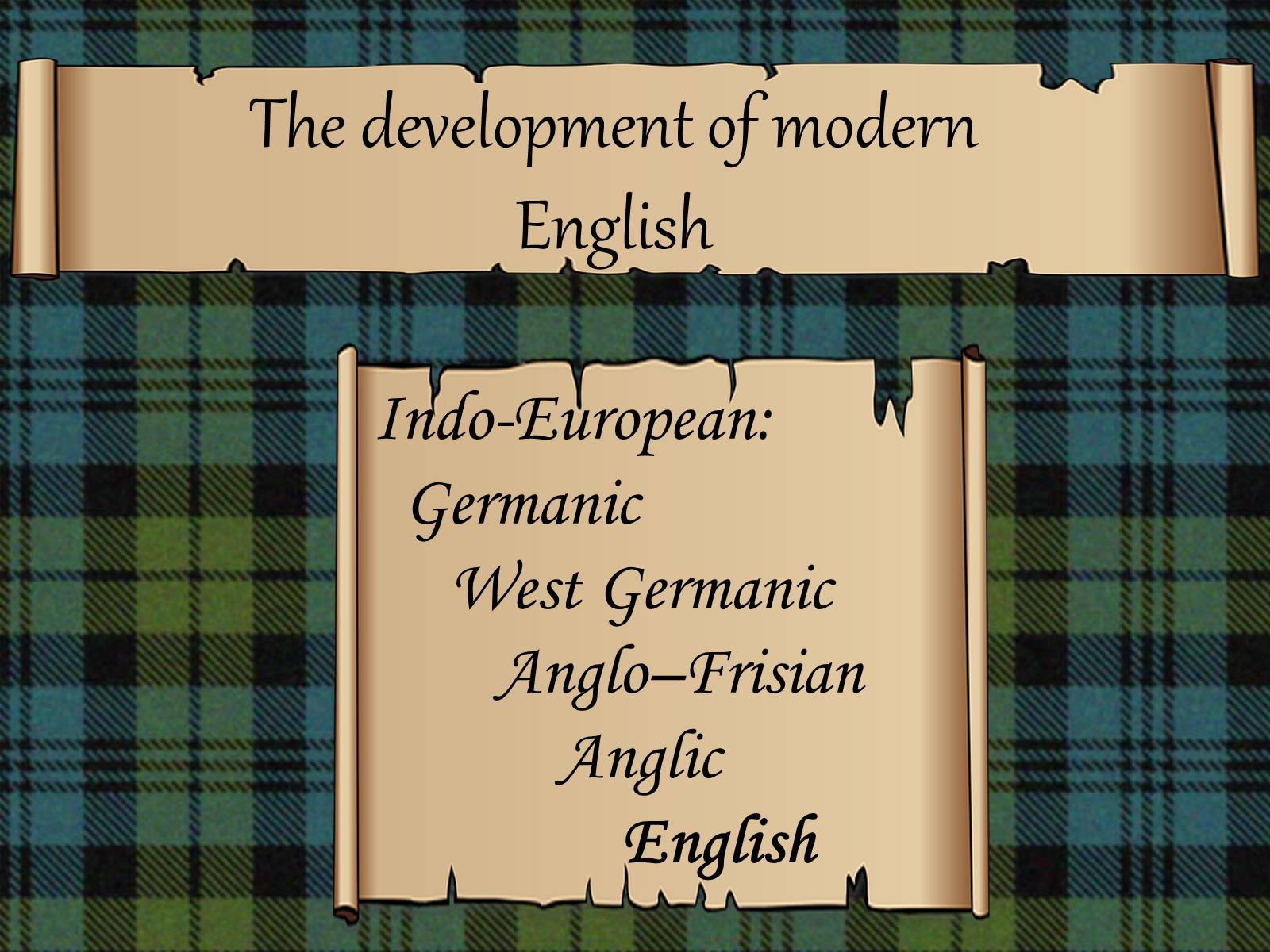
The development of modern English
Indo-European:
Germanic
West Germanic
Anglo–Frisian
Anglic
English
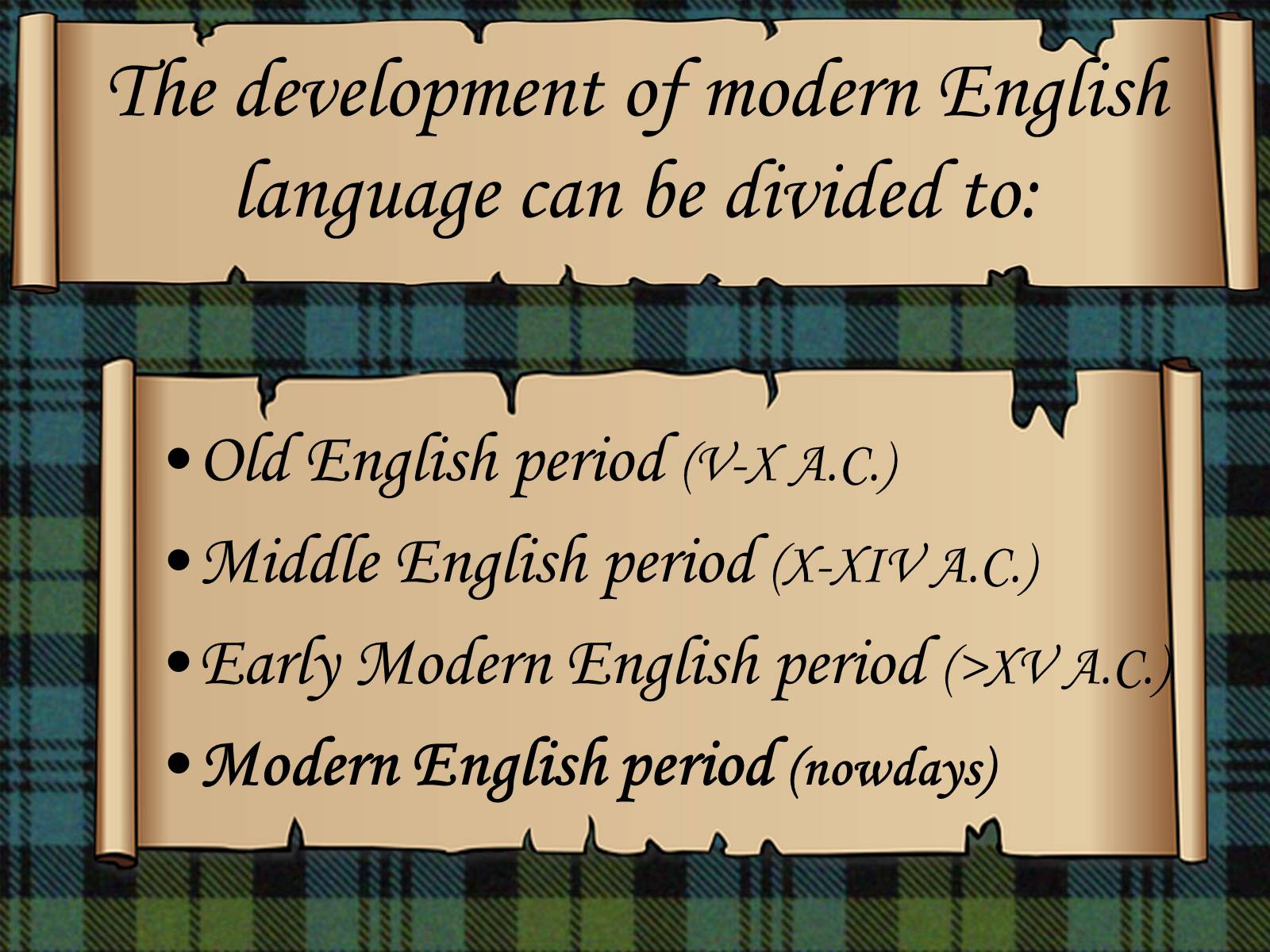
The development of modern English language can be divided to:
Old English period (V-X A.C.)
Middle English period (X-XIV A.C.)
Early Modern English period (>XV A.C.)
Modern English period (nowdays)
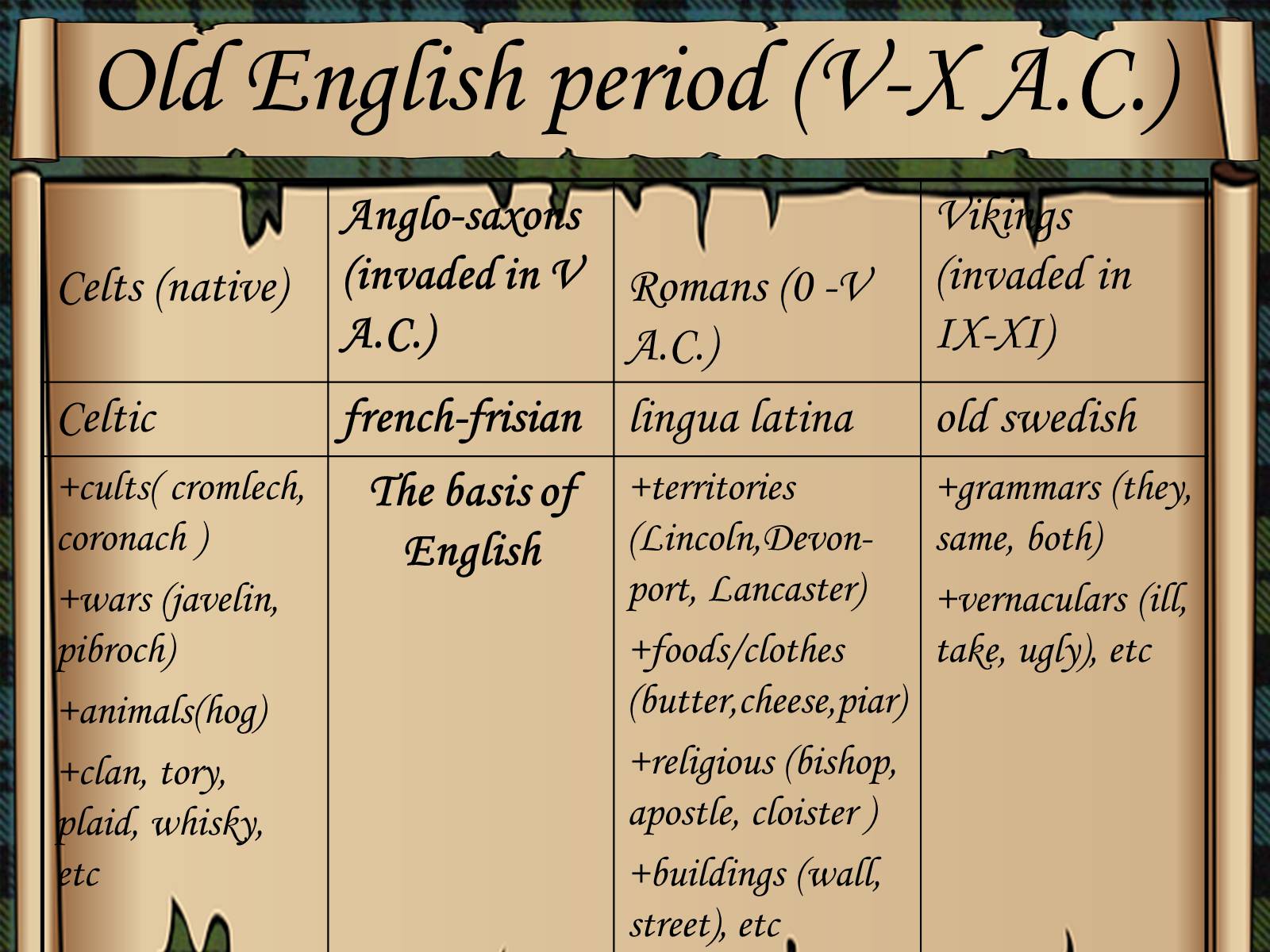
Old English period (V-X A.C.)
Celts (native)
Anglo-saxons (invaded in V A.C.)
Romans (0 -V A.C.)
Vikings (invaded in IX-XI)
Celtic
french-frisian
lingua latina
old swedish
+cults( cromlech, coronach )
+wars (javelin, pibroch)
+animals(hog)
+clan, tory, plaid, whisky, etc
The basis of English
+territories (Lincoln,Devon-port, Lancaster)
+foods/clothes (butter,cheese,piar)
+religious (bishop, apostle, cloister )
+buildings (wall, street), etc
+grammars (they, same, both)
+vernaculars (ill, take, ugly), etc
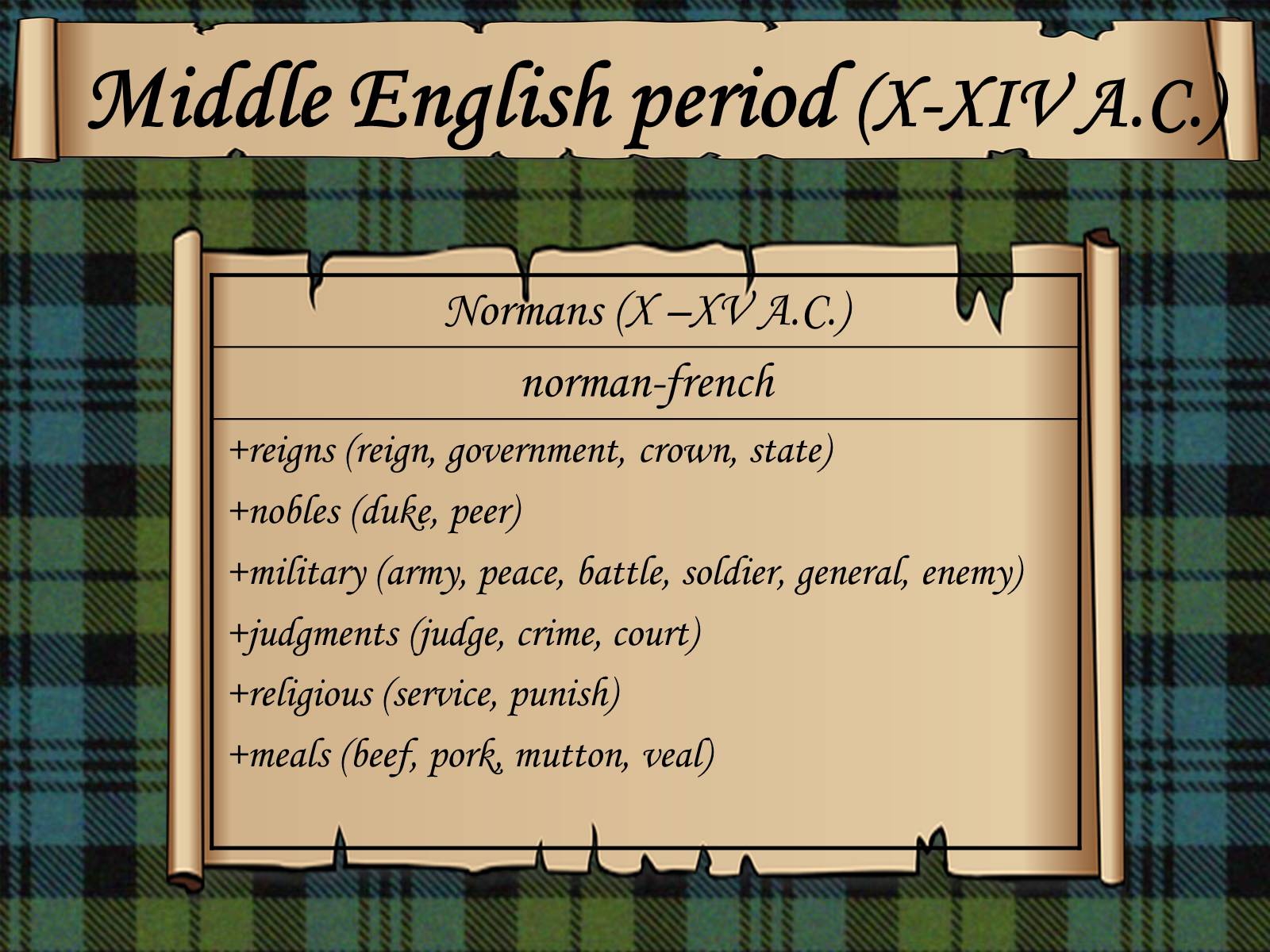
Middle English period (X-XV A.C.)
Normans (X –XV A.C.)
norman-french
+reigns (reign, government, crown, state)
+nobles (duke, peer)
+military (army, peace, battle, soldier, general, enemy)
+judgments (judge, crime, court)
+religious (service, punish)
+meals (beef, pork, mutton, veal)
Middle English period (X-XV A.C.)
Middle English period (X-XIV A.C.)
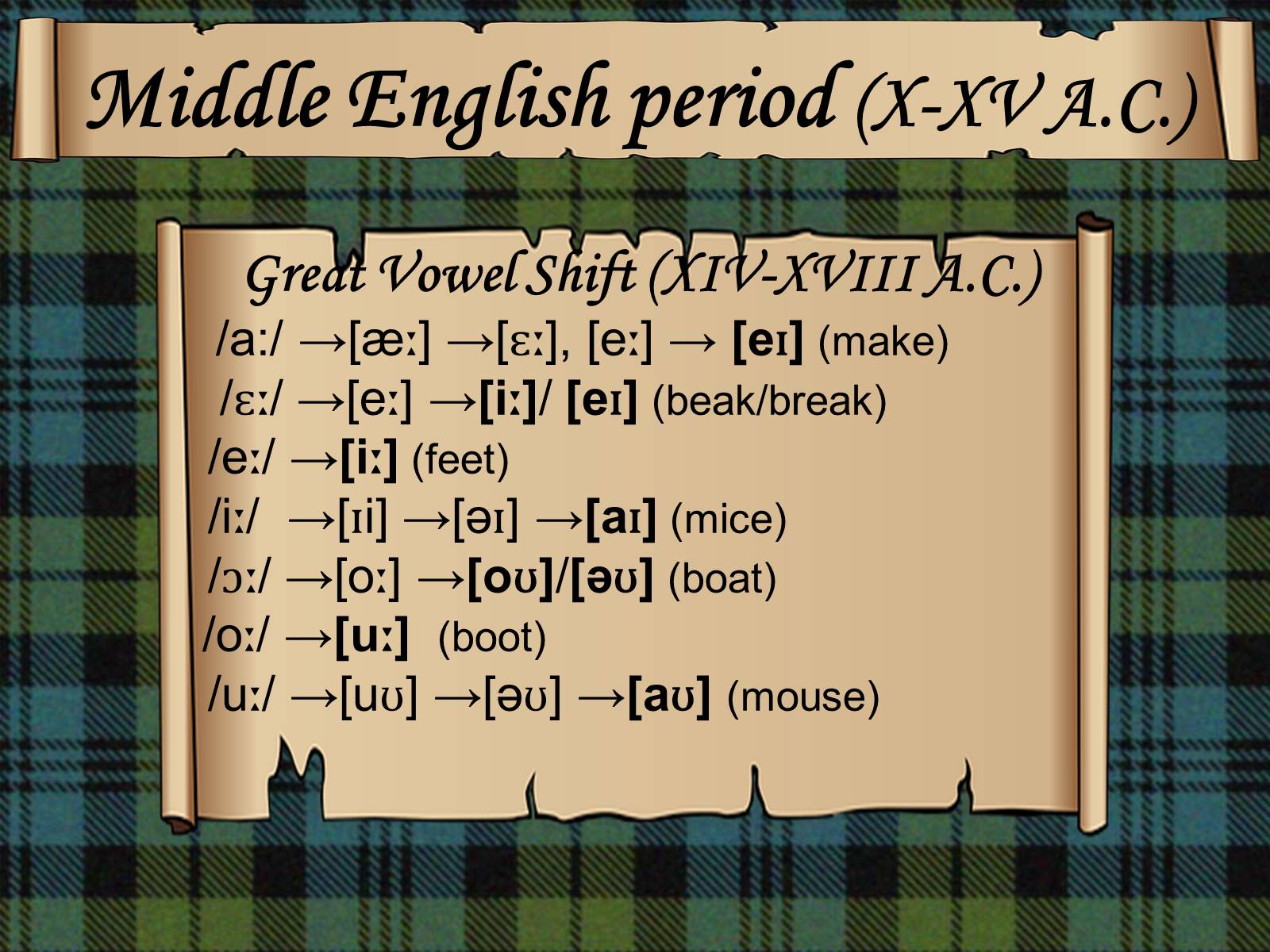
Great Vowel Shift (XIV-XVIII A.C.)
/a:/ →[æː] →[ɛː], [eː] → [eɪ] (make)
/ɛː/ →[eː] →[iː]/ [eɪ] (beak/break)
/eː/ →[iː] (feet)
/iː/ →[ɪi] →[əɪ] →[aɪ] (mice)
/ɔː/ →[oː] →[oʊ]/[əʊ] (boat)
/oː/ →[uː] (boot)
/uː/ →[uʊ] →[əʊ] →[aʊ] (mouse)
Middle English period (X-XV A.C.)
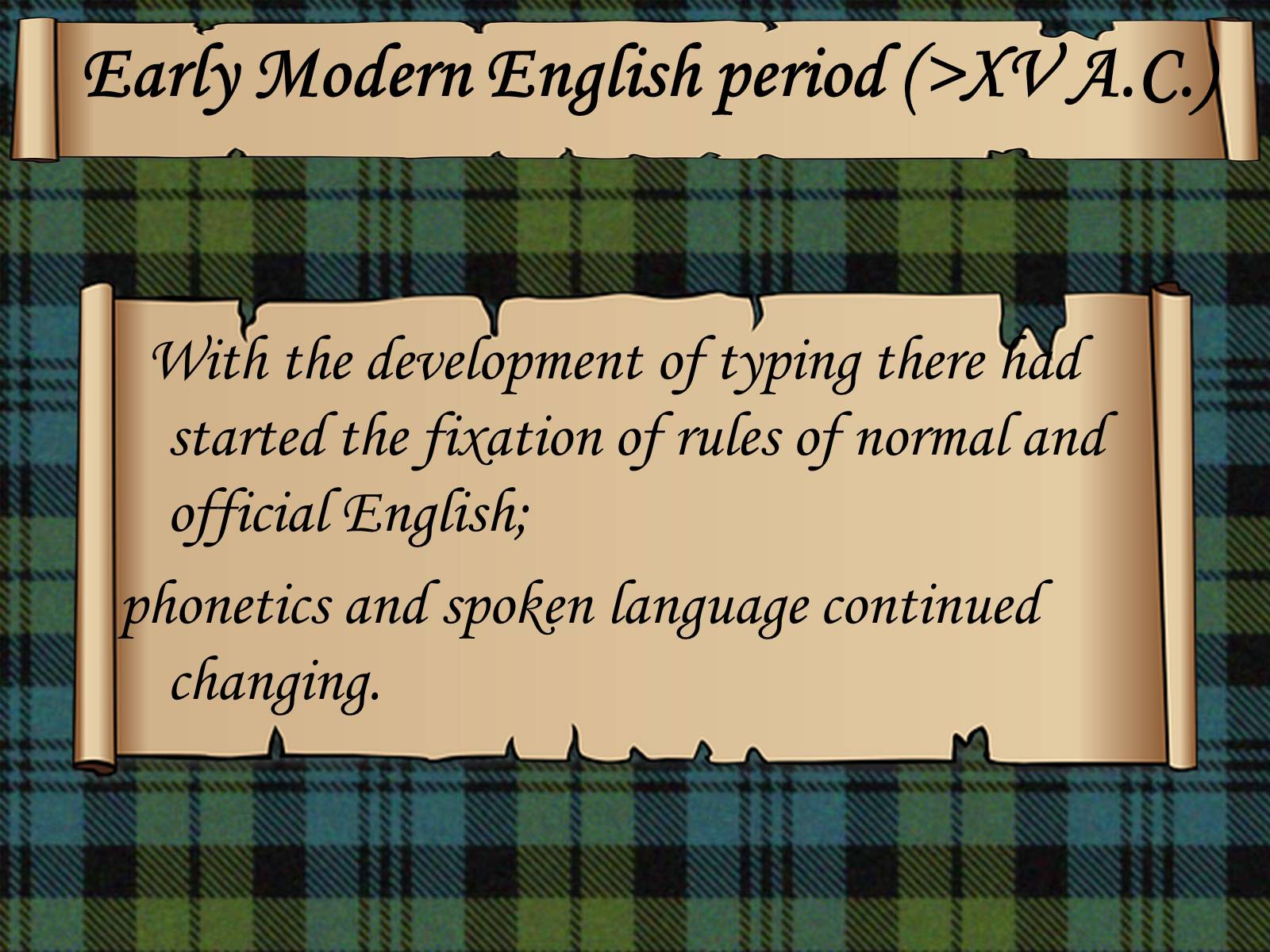
Early Modern English period (>XV A.C.)
With the development of typing there had started the fixation of rules of normal and official English;
phonetics and spoken language continued changing.
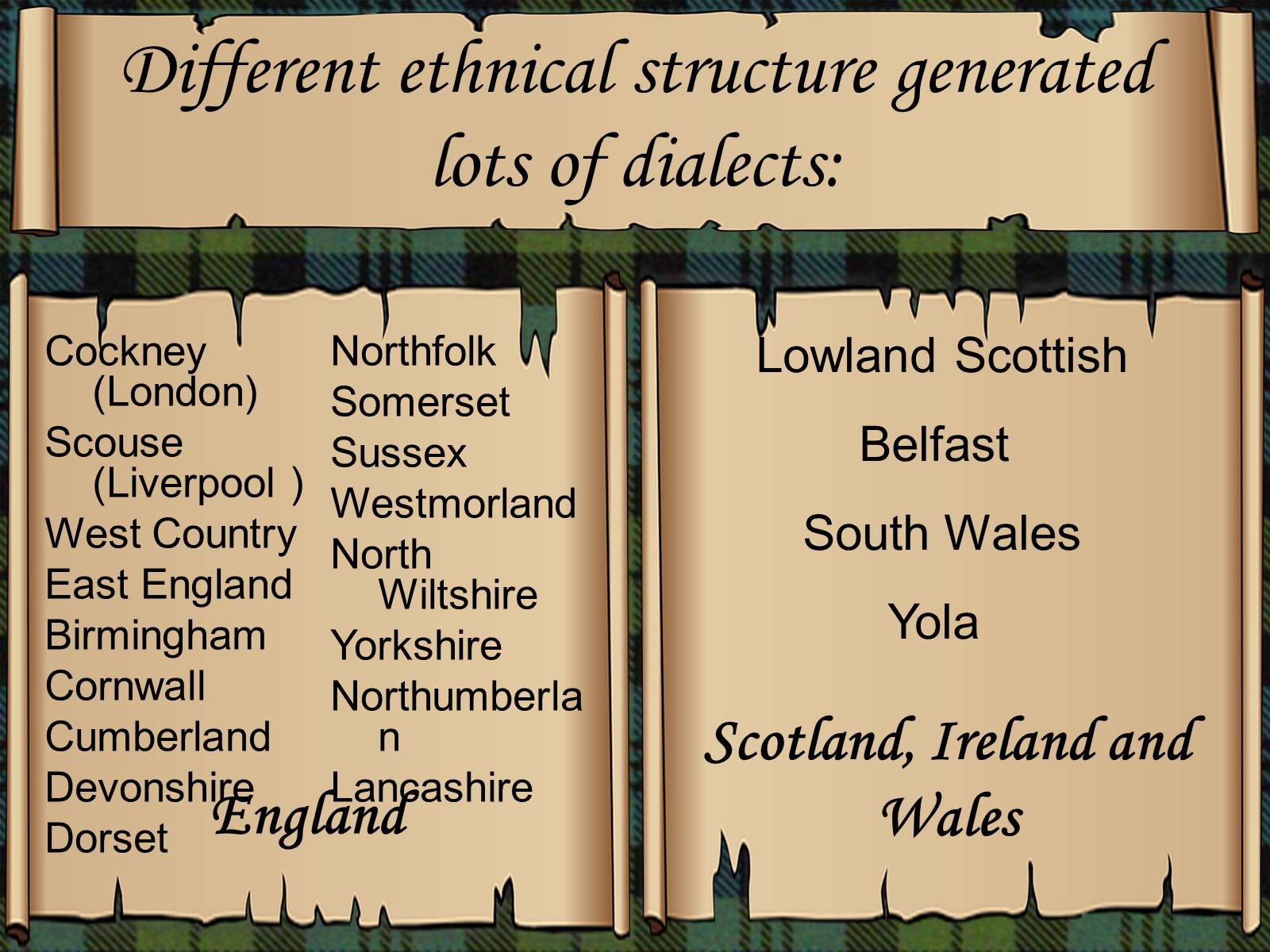
Different ethnical structure generated lots of dialects:
Cockney (London)
Scouse (Liverpool )
West Country
East England
Birmingham
Cornwall
Cumberland
Devonshire
Dorset
Northfolk
Somerset
Sussex
Westmorland
North Wiltshire
Yorkshire
Northumberlan
Lancashire
England
Lowland Scottish
Belfast
South Wales
Yola
Scotland, Ireland and Wales
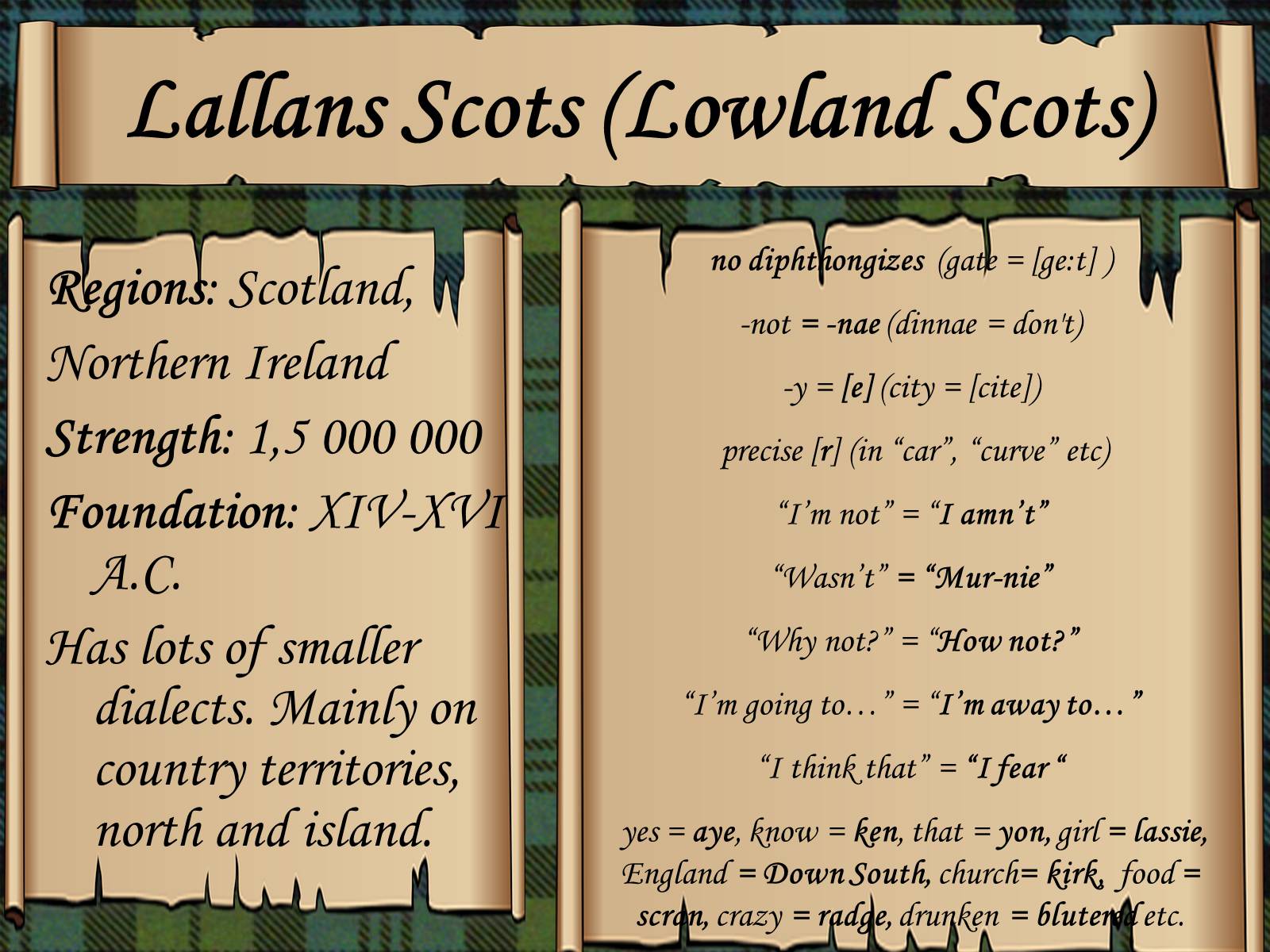
Lallans Scots (Lowland Scots)
Regions: Scotland,
Northern Ireland
Strength: 1,5 000 000
Foundation: XIV-XVI A.C.
Has lots of smaller dialects. Mainly on country territories, north and island.
no diphthongizes (gate = [ge:t] )
-not = -nae (dinnae = don't)
-y = [e] (city = [cite])
precise [r] (in “car”, “curve” etc)
“I'm not” = “I amn't”
“Wasn't” = “Mur-nie”
“Why not?” = “How not?”
“I'm going to…” = “I'm away to…”
“I think that” = “I fear “
yes = aye, know = ken, that = yon, girl = lassie, England = Down South, church= kirk, food = scran, crazy = radge, drunken = blutered etc.
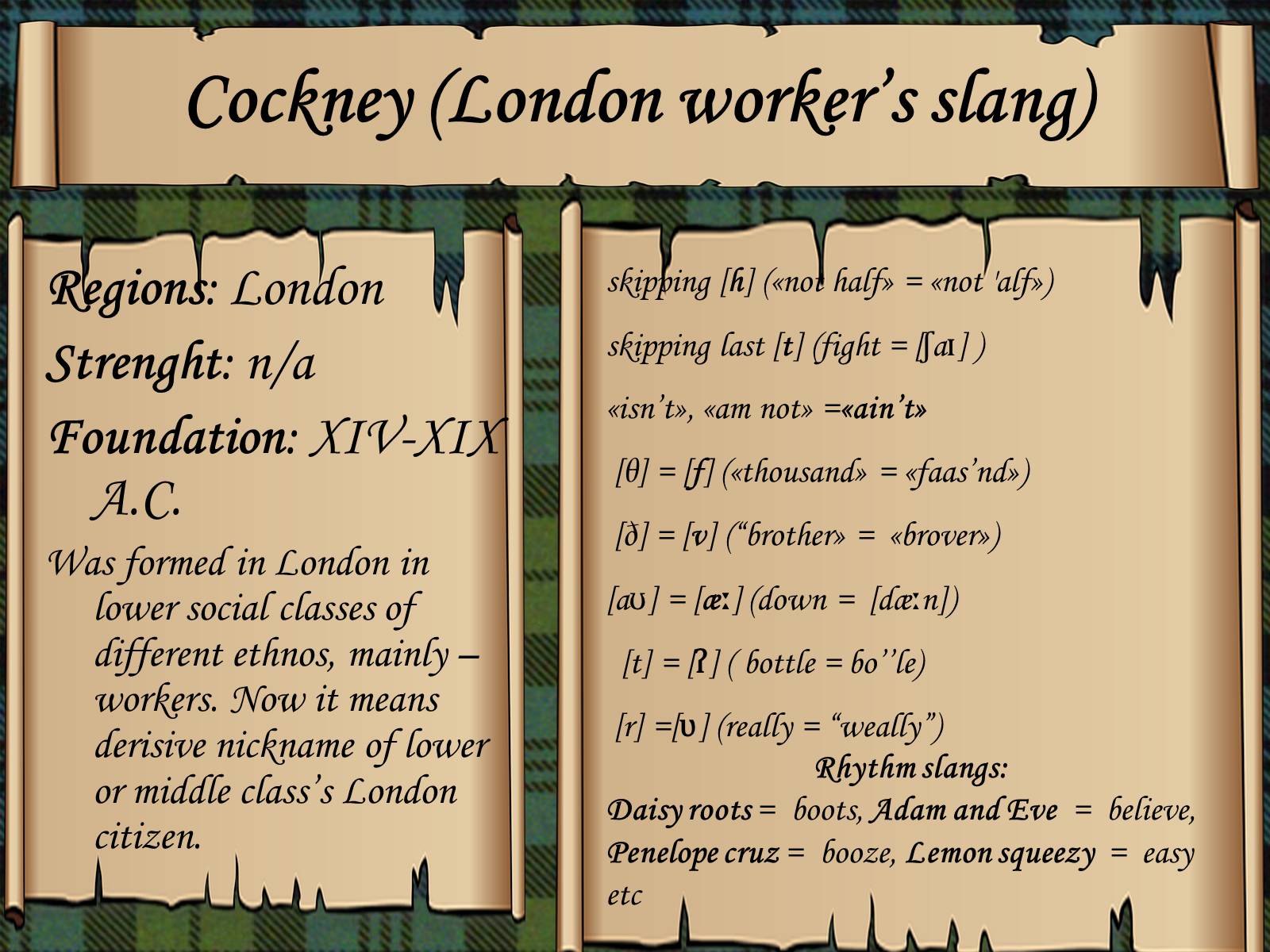
Cockney (London worker's slang)
Regions: London
Strenght: n/a
Foundation: XIV-XIX A.C.
Was formed in London in lower social classes of different ethnos, mainly – workers. Now it means derisive nickname of lower or middle class's London citizen.
skipping [h] («not half» = «not 'alf»)
skipping last [t] (fight = [ʃaɪ] )
«isn't», «am not» =«ain't»
[θ] = [f] («thousand» = «faas'nd»)
[ð] = [v] (“brother» = «brover»)
[aʊ] = [æː] (down = [dæːn])
[t] = [ʔ] ( bottle = bo''le)
[r] =[ʋ] (really = “weally”)
Rhythm slangs:
Daisy roots = boots, Adam and Eve = believe, Penelope cruz = booze, Lemon squeezy = easy etc